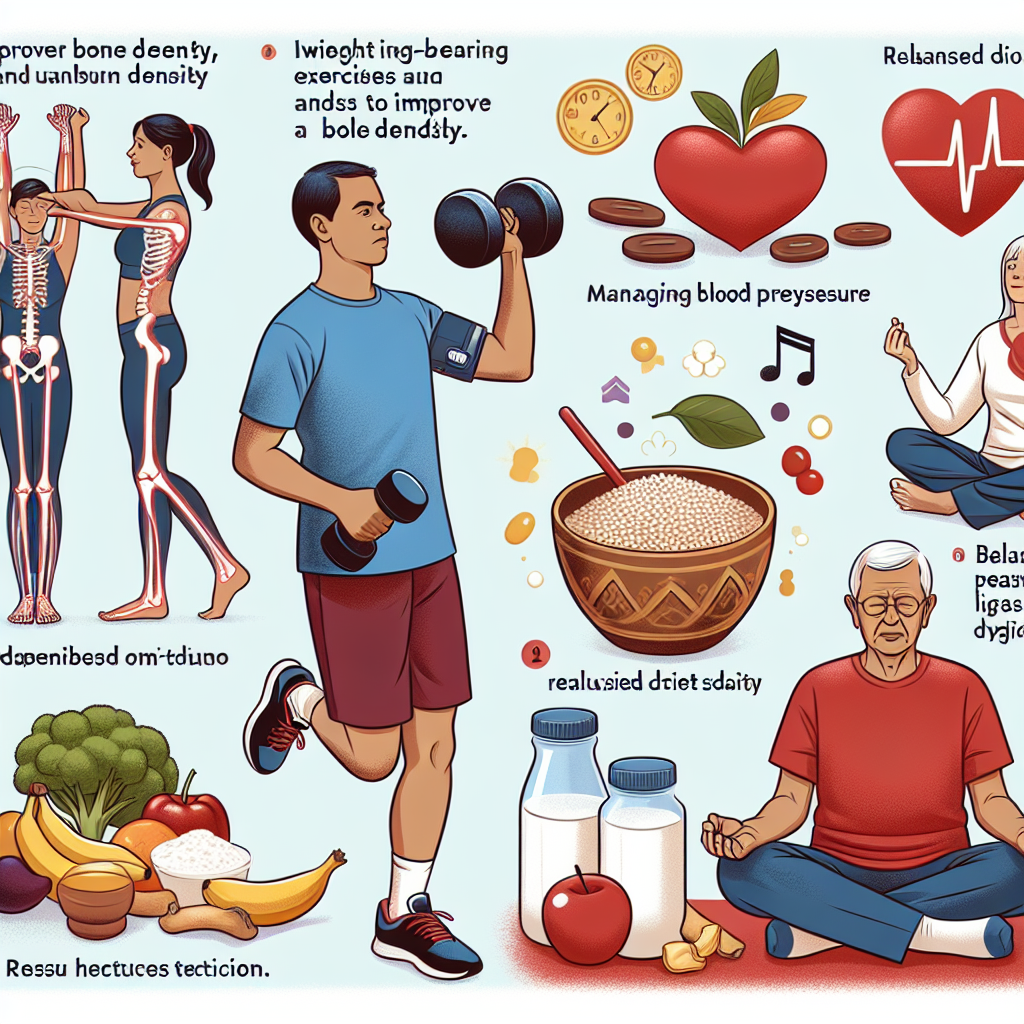Our body’s systems are interconnected, often in ways that may not be immediately apparent. The association between bone health and cardiovascular health is one such intricate connection. Understanding this relationship is crucial for maintaining overall well-being and preventing chronic conditions as we age. This article aims to explore the complex link between bone density and blood pressure, two critical health markers that are often considered in isolation.
The Interplay between Bones and Blood Pressure
Bone density is a measure of the amount of minerals, mainly calcium and phosphorus, contained within a specific volume of bone. It is a crucial indicator of bone strength and overall skeletal health. Low bone density can lead to osteoporosis, increasing the risk of fractures and other bone-related issues. On the other hand, blood pressure refers to the force exerted by circulating blood on the walls of blood vessels, and its regulation is vital for cardiovascular health.
Recent studies have begun to shed light on the correlation between these two aspects of health. For instance, hypertension, or high blood pressure, has been linked to an increased risk of bone density loss. Conversely, maintaining healthy bone density may have a positive impact on blood pressure levels.
Mechanisms Linking Bone Density and Blood Pressure
The mechanisms behind the link between bone density and blood pressure are multifactorial and involve a complex interplay of hormonal, nutritional, and lifestyle factors. Some of the influencing factors include:
-
Calcium Metabolism: Calcium plays a pivotal role in both bone health and blood pressure regulation. Bones act as a reservoir for calcium, which is essential for vascular contraction and dilation, muscle function, nerve transmission, and hormonal secretion. Imbalances in calcium can affect both bone density and blood pressure.
-
The Renin-Angiotensin-Aldosterone System (RAAS): This hormone system is responsible for regulating blood pressure and fluid balance. It also influences bone remodeling by affecting osteoclast activity, which could link it to bone density changes.
-
Inflammatory Markers: Chronic inflammation is a known risk factor for both osteoporosis and hypertension. Inflammatory cytokines can lead to bone resorption and also contribute to vascular damage and hypertension.
-
Physical Activity: Regular exercise is known to enhance bone density through mechanical stress and strain on the bones, which stimulates bone formation. Additionally, physical activity helps in reducing blood pressure.
The Benefits of Weight Lifting for Bone Density
Incorporating weight-bearing exercises into your routine is a proven strategy for improving bone density. Lifting weights and other resistance exercises apply stress to the bones, prompting an increase in bone formation and a decrease in bone resorption. This not only strengthens the bones but also has a beneficial effect on blood pressure. Regular resistance training has been shown to improve vascular health and reduce the risk of hypertension.
Learn more about the benefits of weight lifting for bone density.
Dietary Considerations
Diet is another critical factor that influences both bone density and blood pressure. A diet rich in calcium, magnesium, potassium, and vitamin D supports bone health and can also aid in blood pressure control. Foods like dairy products, leafy greens, nuts, seeds, and fish are excellent sources of these nutrients. On the flip side, excessive sodium intake is a known risk factor for hypertension and can negatively impact bone health by increasing calcium excretion in the urine.
Understanding the role of dietary protein in bone health is also essential, as adequate protein intake is necessary for bone repair and maintenance.
Chronic Conditions and Their Role
Chronic kidney disease is an example of a condition that can affect both bone density and blood pressure. The kidneys play a critical role in maintaining mineral balance, blood pressure regulation, and vitamin D metabolism—all of which are crucial for bone health.
Examine the effects of chronic kidney disease on bone density for a more comprehensive understanding of this relationship.
Addressing Hypertension to Protect Bone Health
Managing hypertension is vital not only for cardiovascular health but also for preserving bone density. Antihypertensive medications, lifestyle modifications, and monitoring blood pressure can contribute to maintaining bone integrity. It’s important to consult healthcare providers to manage hypertension effectively and consider its potential impact on bones.
Moving Forward with Bone and Cardiovascular Health
The intricate connection between bone density and blood pressure underlines the importance of a holistic approach to health. Strategies to improve bone density, such as weight-bearing exercises, adequate nutrition, and lifestyle changes, can also benefit blood pressure. Regular bone density screenings and blood pressure monitoring are essential components of a proactive health plan.
For more niche and specific resources on the connection between bone density and blood pressure, consider exploring the following links:
- A scholarly article on the relationship between cardiovascular health and bone density
- A detailed study on the effects of calcium and hypertension on bone health
- An expert analysis on the impact of physical activity on both blood pressure and bone density
- A comprehensive review of dietary impacts on cardiovascular and bone health
- A clinical guideline for managing chronic conditions that affect both bone density and blood pressure
By recognizing and addressing the connections between different health domains, individuals can achieve better outcomes and enhance their quality of life. Fostering a deeper understanding of how bone density relates to blood pressure is a step towards this holistic health perspective.
Remember, maintaining good health requires attention to all body systems, as they are all part of an interrelated network. By nurturing bone density and managing blood pressure, you can take control of your health and pave the way for a stronger, more resilient body.



